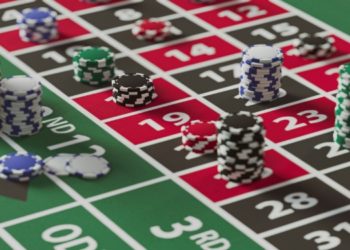Playing slots professionally is an intriguing concept that challenges the common perception of slot machines as pure games of chance. While many view slots as purely luck-based, some individuals aspire to make a living by playing them. This article explores the possibility of playing slots professionally, delving into the intricacies of the game, the challenges faced by professional players, the strategies employed, and the role of skill and knowledge. By examining the experiences of professional slot players and analyzing the elements that contribute to their success, we aim to provide insights into whether playing slots professionally is a viable endeavor or simply a myth.
Understanding Slot Machines
Slot machines are electronic devices that use a random number generator (RNG) to determine the outcome of each spin. When a player initiates a spin, the RNG generates a random sequence of numbers that corresponds to specific symbols on the reels. These symbols are then displayed on the screen, and if certain combinations appear on the designated paylines, the player wins a payout.
- The spinning reels: Slot machines typically feature spinning reels, which are vertical columns that contain various symbols. The number of reels can vary, with three and five-reel slots being the most common.
The Role of Randomness and RNG:
Randomness is a fundamental aspect of UK slots not on GamStop machines. The RNG ensures that the outcome of each spin is independent and unbiased, as the numbers generated are truly random. This means that each spin is not influenced by previous spins or the player’s actions.
- The RNG: The random number generator is a sophisticated algorithm that generates a sequence of random numbers at an incredibly fast rate. These numbers determine the symbols displayed on the reels and ultimately decide whether a spin results in a win or a loss.
Overview of Paylines, Symbols, and Payouts
Paylines are the lines on which winning symbol combinations can occur. Traditional slot machines feature a single payline, while modern slots often have multiple paylines, increasing the chances of winning.
- Symbols: Each reel is adorned with a variety of symbols, such as fruits, numbers, or themed icons. The specific combination of symbols across the paylines determines whether the player wins or loses.
- Payouts: Slot machines offer different payout values for different symbol combinations. The paytable, typically displayed on the machine or in the game’s information, outlines the payouts for each winning combination.
The Challenges of Playing Slots Professionally
One of the primary challenges of playing slots professionally is the existence of the house edge. The house edge represents the mathematical advantage that the casino holds over players in the long run. It ensures that, on average, the casino will generate profit from slot machines.
Long-term profitability: While some players may experience short-term wins, the house edge makes it difficult for players to consistently profit from playing slots over an extended period.
Bankroll Management and Risk Assessment:
Successful professional slot players understand the importance of proper bankroll management. They allocate their funds strategically and set limits to minimize the risk of significant losses.
- Bankroll management: Professional players carefully determine the amount of money they can afford to invest in slots and set strict limits on their spending. They avoid chasing losses and maintain discipline in managing their bankroll.
The Impact of Volatility and Variance:
Volatility and variance are key factors that influence the risk and potential rewards in slot machine gameplay. Understanding these concepts is crucial for professional players in assessing the profitability of their strategies.
- Volatility: Refers to the level of risk and the frequency of winning in a slot machine. High volatility slots offer larger but less frequent wins, while low volatility slots offer more frequent but smaller wins. Professional players choose slots based on their risk tolerance and preferred playing style.
- Variance: Similar to volatility, variance measures the distribution of wins in a slot game. Low-variance non-GamStop casino provide a steady stream of small wins, while high-variance slots offer infrequent but significant wins. Professional players consider variance when selecting slots that align with their desired risk-reward balance.
Understanding the mechanics of slot machines and the challenges involved in playing professionally is essential for those considering this path. By comprehending the workings of slot machines and evaluating the factors that impact long-term profitability, bankroll management, and risk assessment, individuals can make informed decisions about pursuing a professional slot-playing career.
Strategies and Approaches
There are various strategies and playing styles that players may adopt when playing slots professionally. These strategies can involve factors such as bet sizing, game selection, and play duration.
- Bet sizing strategies: Some players may employ strategies like the Martingale system, where they adjust their bet sizes based on previous wins or losses. Others may prefer a more conservative approach, sticking to consistent bet sizes throughout their gameplay.
- Game selection strategies: Professional players may choose to focus on specific types of slot machines or specific game features, such as high-paying bonus rounds or progressive jackpots. They may also consider factors like volatility and payout percentages when selecting games.
Progressive Betting Systems and Their Effectiveness:
Progressive betting systems involve adjusting bet sizes based on previous outcomes, with the aim of maximizing wins or recovering losses. Systems like the Fibonacci or the Paroli system are examples of progressive betting strategies. However, it is important to note that while these systems can provide a structured approach to betting, they do not guarantee long-term success and can be risky.
Slot Tournament Strategies:
Slot tournaments offer a competitive environment where players compete for prizes based on their performance in a given timeframe. Professional players may employ specific strategies to maximize their chances of winning in these tournaments. These strategies can include playing at a fast pace, utilizing maximum bet options, and strategically managing their bankroll during the tournament.
The Role of Skill and Knowledge
Slot machines are predominantly games of chance, where outcomes are determined by random number generators. However, there are certain skills that can enhance a player’s overall experience and potentially improve their chances of winning.
- Timing and observation: Skilled players may observe patterns in the gameplay, such as identifying when a machine is more likely to pay out or recognizing the right moment to switch to a different machine.
Factors That Can Influence Outcomes
While luck remains the primary determinant of outcomes in slot machines, factors like timing and game selection can indirectly influence a player’s results. For example, playing during off-peak hours may lead to more favorable conditions, as there might be fewer players competing for the same machines.
Strategies and Approaches
There are various strategies and playing styles that players may adopt when playing slots professionally. These strategies can involve factors such as bet sizing, game selection, and play duration.
- Bet sizing strategies: Some players may employ strategies like the Martingale system, where they adjust their bet sizes based on previous wins or losses. Others may prefer a more conservative approach, sticking to consistent bet sizes throughout their gameplay.
- Game selection strategies: Professional players may choose to focus on specific types of slot machines or specific game features, such as high-paying bonus rounds or progressive jackpots. They may also consider factors like volatility and payout percentages when selecting games.
Progressive Betting Systems and Their Effectiveness:
Progressive betting systems involve adjusting bet sizes based on previous outcomes, with the aim of maximizing wins or recovering losses. Systems like the Fibonacci or the Paroli system are examples of progressive betting strategies. However, it is important to note that while these systems can provide a structured approach to betting, they do not guarantee long-term success and can be risky.
Slot Tournament Strategies:
Slot tournaments offer a competitive environment where players compete for prizes based on their performance in a given timeframe. Professional players may employ specific strategies to maximize their chances of winning in these tournaments. These strategies can include playing at a fast pace, utilizing maximum bet options, and strategically managing their bankroll during the tournament.
The Role of Skill and Knowledge
Slot machines are predominantly games of chance, where outcomes are determined by random number generators. However, there are certain skills that can enhance a player’s overall experience and potentially improve their chances of winning.
- Timing and observation: Skilled players may observe patterns in the gameplay, such as identifying when a machine is more likely to pay out or recognizing the right moment to switch to a different machine.
Factors That Can Influence Outcomes
While luck remains the primary determinant of outcomes in slot machines, factors like timing and game selection can indirectly influence a player’s results. For example, playing during off-peak hours may lead to more favorable conditions, as there might be fewer players competing for the same machines.
Importance of Understanding Game Mechanics and Pay Tables:
Having a thorough understanding of the mechanics of a specific slot machine and its pay table is crucial for professional players. This knowledge allows them to make informed decisions about betting strategies, bonus features, and potential winning combinations.
Professional slot players recognize that while skill and knowledge can enhance their overall gameplay, the element of luck remains significant in determining outcomes. By understanding different strategies and approaches, including progressive betting systems and tournament strategies, players can refine their techniques and make more informed choices during their slot machine sessions.
Conclusion
In conclusion, playing slots professionally presents an intriguing challenge to the common perception of slot machines as purely luck-based games. While skill and strategies can enhance gameplay, luck remains a significant factor. While some individuals may achieve short-term success, consistent long-term profitability proves to be a considerable challenge. Ultimately, playing slots professionally requires a balanced approach that incorporates strategy, risk management, and an understanding of the game’s inherent randomness.


![7 Best POS Software in the UK [2026 Edition]](https://todaynews.co.uk/wp-content/uploads/2026/02/7-Best-POS-Software-in-the-UK-2026-Edition-360x180.png)







































































